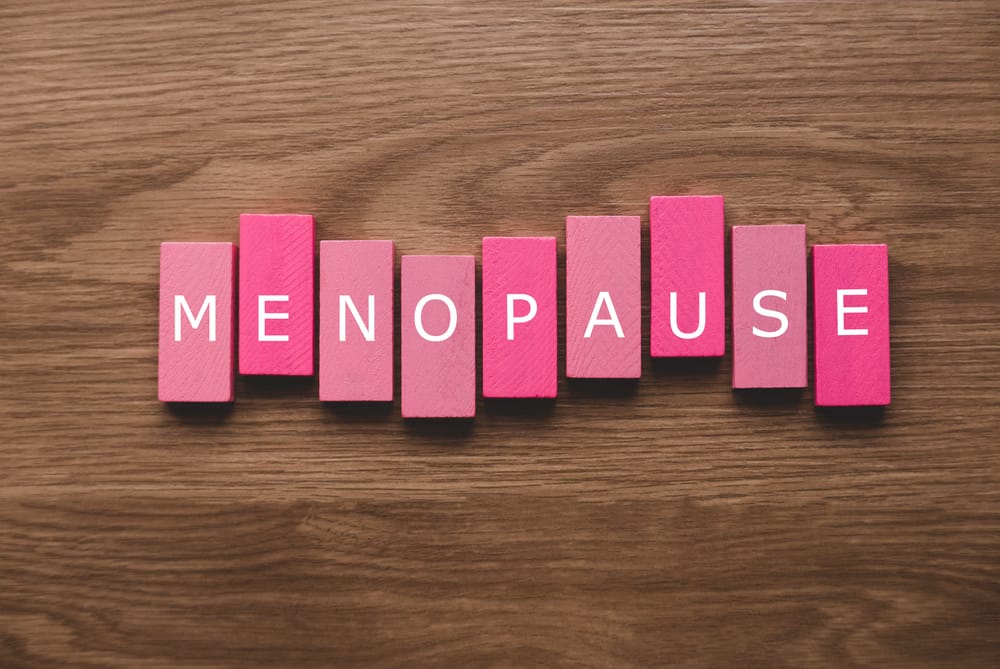Menopause: Symptoms, Care Tips, Remedies and More

Menopause age varies from woman to woman but it generally begins between the age range of 45 to 55. There are several signs and symptoms that indicate the beginning of menopause but the most obvious one is the absence of menstruation over a period of 12 months. The effect of menopause on overall health varies considerably, but usually, it is not very intense. However, its symptoms can be severe in some cases and can also affect mental health and well-being. Hence, it is best to have some menopausal care tips handy. You will find some excellent tips along with the necessary information in this blog.

What is Menopause and how does it Affect your health?
A woman is diagnosed with menopause if she goes without menstruating for consecutive 12 months. It is the stage at which a woman’s ovaries stop releasing eggs and producing most of the estrogen hormone. And this change in the levels of estrogen and menopause, in general, can affect your body in multiple ways. Here are some of the most commonly experienced effects of menopause-
1. Hot Flashes
One of the most prominent adverse effects of menopause is hot flashes, which can even persist for years after menopause. It occurs due to the lack of estrogen production in the body. These flashes bring on feelings of abrupt heat, flushed skin, and excessive perspiration.
2. Anxiety and mood swings
Menopause affects our nervous system as well. You might experience anxiety, mood swings and irritability. It can also be a trigger for your depression if ignored.
3. Insomnia
Almost 60% of women experience insomnia during and postmenopausal period. You might take longer than usual to fall asleep, have a sleepless night, or sleep less than 6 hours in a day if you’re experiencing insomnia. Not to mention the adverse effects of not taking proper sleep.
4. Weight gain
Multiple hormonal changes brought on by menopause may have an impact on your weight. You can see weight gain in your thighs, hips, and tummy. However, other factors like ageing, inactivity and eating patterns may also be to blame for the weight gain.

5. Loss in bone density
Low estrogen levels also impact your skeletal structures. Most women experience diminished bone density after menopause and this increases the risk of osteoporosis and fractures. You may also experience loss of muscle mass after your periods stop completely.
6. Incontinence
You may also experience a lack of bladder control or bladder leakage or incontinence during menopause. It is also due to the lack of estrogen levels in your body.
7. Increased risk of heart attack
The body's cholesterol is altered by lower levels of estrogen, which may raise the risk of heart attack or stroke.
8. Vaginal dryness and painful sex
A lot of women complain about vaginal dryness post menopause and it directly affects their sex drive. Sex can be extremely painful and unpleasant if vaginal dryness persists.
Why is Post-Menopausal Care necessary?
Menopausal care includes several big and small changes that we’ll discuss shortly. But, before jumping on that let’s discuss why care is necessary in the first place. Menopause is a natural process and care is the only thing you can do it make it a bit easier for yourself. As you have just read, right from weak bones, and incontinence to increased anxiety and depression, menopause can affect your body and mind severely. Therefore, you risk experiencing the consequences in the years that follow if you don't take good care of yourself both during and after this time.
Menopause Care Tips
Menopause may have a detrimental effect on your health. So, even if you are not facing any severe symptoms, we will advise you to take proper care, better to be safe than sorry. Here are some of the ways in which you can take good care of yourself post-menopause-
1. Do yoga and meditation
Making yoga and meditation a part of your routine is not only going to help you with post-menopausal symptoms but also throughout your life. You can check out Newmi’s Holistic Wellness plan, pick the one that suits your requirements and start your well-being journey with the help of experts.

2. Improve your diet
Loss of bone density is something every woman will experience after menopause. Weak bones mean an increased risk of osteoporosis. So, if you want to be on the safer side and maintain good bone strength, it is best to include calcium and Vitamin D-rich foods in your diet. However, if you are confused about what menopause diet should look like, you can check our plans or ask our experts.
3. Keep a check on your weight
As mentioned earlier, you may experience weight gain post-menopause. Remember that mismanaged weight and an obese body welcome several health risks and can even affect your mental health. So, it is best to keep a close eye on your weight and exercise regularly.

4. Moisturize and Lubricate
Your body might stop producing vaginal fluids like it once used to but you can always use lubricants for vaginal dryness creams. Invest in good moisturizing creams or lubricants and do yourself a favour.
5. Try Acupuncture
Acupuncture is a key component of traditional Chinese medicine and is well-known for its efficacy in alleviating pain and reducing stress. Acupuncture has also been recommended by some women as a temporary hot flash treatment method.
6. Drink more water
Drinking water in adequate amounts in a day can help you in many ways. Menopause pains, nausea, and hot flashes will all be relieved, along with the intensity and frequency of headaches. You will also witness clear skin, reduced weight and improved brain function if you drink 8-12 glasses of water in a day.
7. Avoid certain food items
Avoid spicy food, alcohol, caffeine, processed food and don’t skip meals if you don’t want menopausal symptoms to worsen. These food items are known for increasing your blood sugar level, and body temperature and thus worsening menopause for you.
8. Consult OB-GYN
Many blogs out there might convince you of hormone replacement therapy or eating supplements but we have a different stance. These things require medical expertise and knowledge, you should not become your own doctor as it might make things worse. It is best to consult an OB-GYN once you feel like you are approaching menopause. You can consult experienced gynaecologists through Newmi’s platform.
Frequently asked Questions
At what age do periods stop?
On average, women experience menopause or in other words, their periods stop completely by the age of 51.
How can I treat my menopause naturally?
You can alter your lifestyle by eating better, incorporating yoga into your routine, meditating, drinking more water, exercising frequently, and giving up processed foods to reduce menopausal symptoms.
Schedule your Consultation
Menopause can be difficult to deal with and it becomes way more difficult without proper care and knowledge. Even though you may not be experiencing any severe symptoms, please understand that your body is undergoing internal changes that you are unaware of. So, please make sure to follow the aforementioned care tips and in case you have further doubts please drop a comment, Newmi care experts are here for your help. Don’t delay further and schedule your consultation today!
Leave a Comment
Blogs
Popular Posts
Get the latest from Newmi
Subscribe to get Email Updates!
Thanks for subscribe.
Your response has been recorded.
COPYRIGHT © 2025 KA HEALTHCARE PVT LTD - ALL RIGHTS RESERVED.
Disclaimer: NEWMI CARE does not cater to any medical/Pregnancy or psychiatric emergencies. If you are in a life-threatening situation, please do NOT use this site. If you are feeling suicidal, we recommend you call a suicide prevention helpline or go to your nearest hospital.

0 Comment